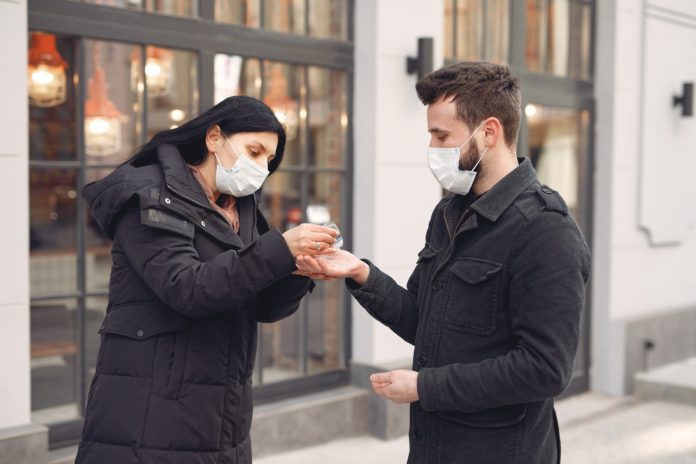During the Ministry of Health’s daily press briefing on Wednesday, provincial health officer Dr. Bonnie Henry expressed that she is not against the use of homemade or cloth masks by the general public.
Originally, when B.C. had just one case of COVID-19, experts warned against non-health care workers wearing protective face masks, stating that doing so can actually increase chances of transmission, as people wearing the mask are more likely to touch their face.
However on Wednesday, after 1,066 cases and 25 deaths, the provincial health officer stated that she was not against the use of homemade masks by members of the public, given mounting evidence that asymptomatic COVID-19 patients can act as carriers of the virus.
Dr. Henry reiterated that N95 or medical grade masks must be reserved for doctors, nurses, and other workers in the health care industry, amid looming shortages of Personal Protective Equipment (PPE) for those battling the pandemic on the front lines.
Non-medical homemade masks made of cloth, on the other hand, could be useful in preventing the spread of COVID-19 and other influenza-like viruses among members of the community by keeping their droplets, emitted while coughing or sneezing, contained and away from others.
For those wearing the masks, Dr. Henry says they most likely do not provide any personal protection.
“What is not proven is that they provide you with any protection, and I think that’s the really critical part,” said Dr. Henry.
People who do choose to wear a non-medical mask are cautioned to be aware of how much they are touching their face while wearing it and to make sure the masks are cleaned regularly.
N95s in the community
As fears surrounding the global pandemic increase, however, many health care workers have reported individuals hoarding or even stealing N95 masks from hospitals and clinics.
This trend has been observed, with mounting frustration, by Catharina Peterson, a Registered Nurse with the Vancouver Island Health Authority.
According to Peterson, many on Vancouver Island have been using N95 masks incorrectly and adds that members of the community do not need medical grade masks in the first place.
“These masks protect health care workers from particulates that are circulating in the air,” says Peterson.
“COVID-19 isn’t normally ‘floating around in the air’, there are specific medical situations where we might, by consequence of treatment, cause the virus to become an ‘aerosol’ or to become ‘airborne’.”
Performing CPR or using a ventilator, for example, may cause the COVID-19 virus to become airborne, which is not something people in the community need to worry about when they are out getting groceries, Peterson points out.
Moreover N95 masks do not come in a one-size-fits-all model and require a fitting session in order to make sure they are useful to health care workers.
“These masks require a FIT testing session where airborne particles that have a funny taste are sprayed into a hood while the healthcare worker goes through a series of movements and steps to see if it actually fits their face properly and protects from airborne particles,” adds Peterson.
When worn improperly by regular members of the public, these masks can provide a false sense of security and may serve to increase the risks of transmission as people constantly touch their face to readjust ill-fitted masks.
Peterson, like Dr. Bonnie Henry and other public health experts, reiterates once again that the best way to curb the spread of COVID-19 is to stay at home and avoid contact with people outside your household.
See all the latest updates about the global COVID-19 pandemic on Vancouver Island
According to the latest updates, there are 1,066 cases of COVID-19 in British Columbia, including 72 on Vancouver Island.
In good news, a total of 606 people have now recovered from the virus in B.C.
The BCCDC has set up a 2019 novel coronavirus telephone information line at 1-833-784-4397 for those who have further questions about this disease.
Anyone concerned that they may have been exposed to, or are experiencing symptoms of the novel coronavirus, should contact their primary care provider, local public health office, or call 8-1-1.
The Province has also created the 1-888-COVID-19 line to connect British Columbians needing non-medical information about the coronavirus pandemic.
As of the time of publication, the total number of COVID-19 patients worldwide has risen to 1,007,436.
Over 51,700 people have died from the illness and 210,582have made a full recovery.


